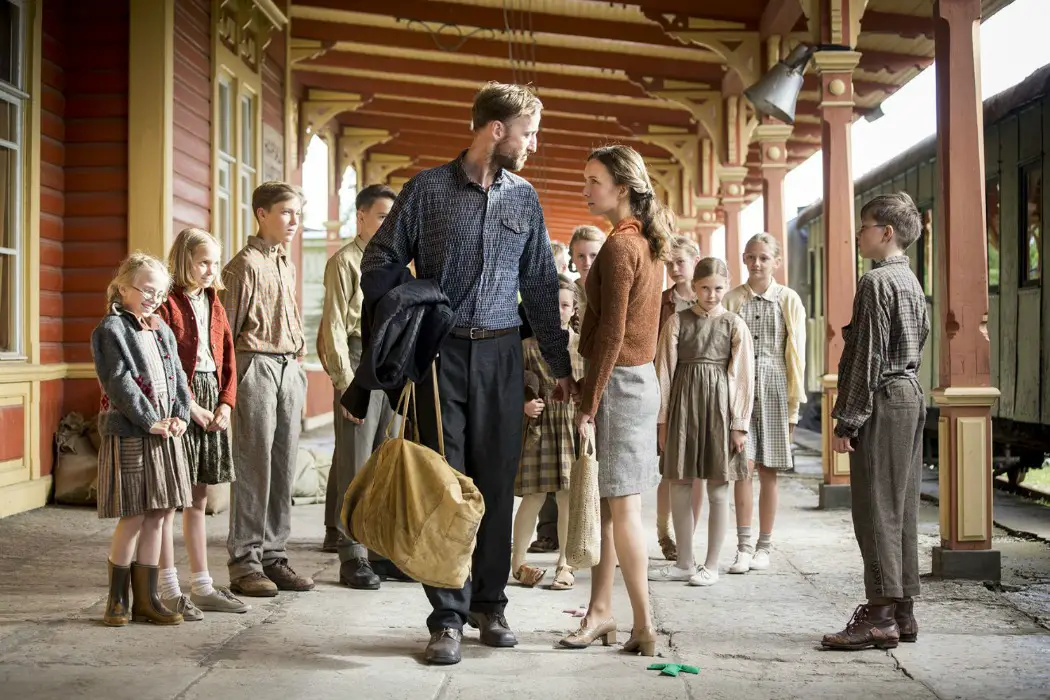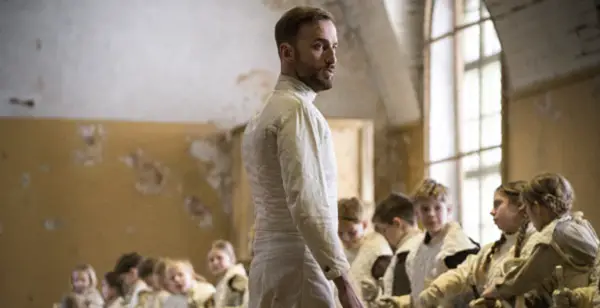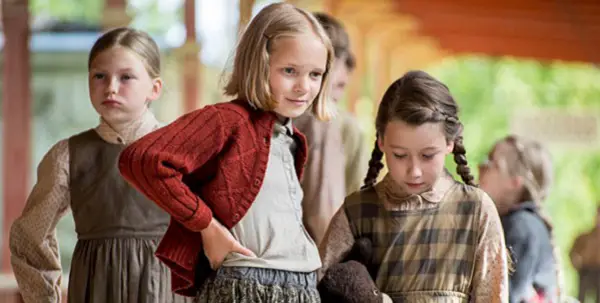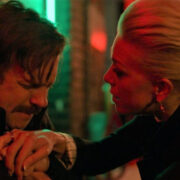THE FENCER: To Sir, With Sabers

Lee Jutton has directed short films starring a killer toaster,…
To look at movies as though they were wholly accurate reflections of real life (because, alas…), one would think that becoming a teacher was a cure to all of life’s problems. From the out-of-work engineer who becomes an inspiration to inner city Londoners in To Sir, With Love, to the frustrated composer who finds fulfillment as a high school music teacher in Mr. Holland’s Opus, to the professor who bestows his students with the power of poetry in Dead Poet’s Society: one could go on almost indefinitely listing the teacher-saviors of the cinema.
No disrespect to teachers, of course, and the numerous young lives they are capable of touching and changing in their work – and vice versa. But, as a movie genre, teacher stories have generally devolved from inspirational to entirely predictable. The latest example of the genre, The Fencer, benefits from having a relatively unique setting in post-World War II Estonia. But apart from the novelty of showing us a side of history we haven’t seen, the movie itself is too familiar to be truly remarkable.
Dead Fencer’s Society
Directed by Klaus Härö and written by Anna Heinämaa, The Fencer is based on the life story of Endel Nelis (very stoically portrayed by Märt Avandi), a celebrated Estonian fencer and coach. It takes place in the years following World War II, when Estonia was incorporated into the Soviet Union. Estonia had been under Nazi occupation during the war, and as a result, many Estonian men were drafted to fight for the Nazis. As the Soviets look upon all former Nazi soldiers as enemies of the state – even those who were forced to serve – it is dangerous to be an Estonian veteran. Hence why Nelis, a veteran himself, is forced to flee Leningrad for the relatively safe confines of the small Estonian town of Haapsalu.

In Haapsalu, Nelis finds work as a physical education teacher and starts a sports club, where he begins teaching the children the art of fencing. Once a highly competitive fencer himself, Nelis cannot compete anymore, as it would lead the Soviet secret police from Leningrad straight to his door. The head of the school disapproves of the pursuit, decrying fencing as far too fancy of a pastime for working class Soviet citizens, and begins investigating the origins of his mysterious new employee.
In the meantime, the children find incredible self-expression in the art of fencing, and, as many of them were orphaned as a result of the post-war persecution of former Nazi soldiers, a much needed father figure in Nelis. When the students are invited to a prestigious fencing tournament in Leningrad, Nelis must decide whether it is worth risking his life and his freedom to give his small-town students a chance to shine on the biggest stage in the Soviet Union.
Mr. Nelis’ Opus
Now, I have read a lot of books about World War II (because I am far too fascinated with the study of evil), but I must confess I was largely ignorant to the plight of the Estonians and their Baltic brethren during and after the war. And I imagine I am not the only one; after all, if you are an American moviegoer, most of the World War II stories you are spoonfed relate to the heroic deeds of American soldiers (or, if we’re really going to expand our horizons, British ones) in the face of the greatest evil the world has ever known.
What occurred at the eastern front is usually pushed aside in favor of retellings of the rescue at Dunkirk, the invasion at Normandy, or the resistance to the Holocaust. I had no idea that Estonian men had been drafted to fight for the Nazis, let alone that by doing so, they had essentially signed a death warrant with the Soviets. So, I found the historical background of The Fencer absolutely eye-opening. The stories of the smaller countries that suffered during the epic battle of tug-of-war between the Allies and the Axis Powers deserve to be told. We need to be reminded that there was more to World War II than just square-jawed American determinism.

Unfortunately, the setting is where the originality of The Fencer ends. While it is based on a true story, it’s predictable enough to have rolled straight off the screenwriting-class assembly line, including the fellow teacher who becomes a love interest for Nelis and the mid-tournament injury that leads the team’s plucky alternate to take center stage against an opponent twice her size. That’s not to say that the film isn’t enjoyable to watch; it’s just that it also is not surprising in the slightest.
The acting is solid, while the Soviet villains are fittingly scary and Nelis is appropriately heroic all the way to his perfectly grown beard. Yet watching as Nelis’ initially prickly demeanor is gradually softened by his students, one cannot help but feel that one has heard this story a million times before, just in a variety of different settings. By the time the end credits roll, it’s hard to think of a single unique moment in the film apart from those specifically generated by its setting.
The Fencer: Conclusion
If you want to feel inspired without using your imagination, The Fencer is the movie for you. But if you’re tired of the same old teacher-related tropes, you’ll probably want to give this one a pass – unless you really want to learn more about Estonia. And there’s nothing wrong with that!
What do you think? Are teacher movies are tired genre? Can you think of any that defy the same old cliches? Share your thoughts in the comments.
The Fencer opens in the United States on July 21, 2017. For more international release dates, please see here.
Does content like this matter to you?
Become a Member and support film journalism. Unlock access to all of Film Inquiry`s great articles. Join a community of like-minded readers who are passionate about cinema - get access to our private members Network, give back to independent filmmakers, and more.
Lee Jutton has directed short films starring a killer toaster, a killer Christmas tree, and a not-killer leopard. Her writing has appeared in publications such as Film School Rejects, Bitch: A Feminist Response to Pop Culture, Bitch Flicks, TV Fanatic, and Just Press Play. When not watching, making, or writing about films, she can usually be found on Twitter obsessing over soccer, BTS, and her cat.











